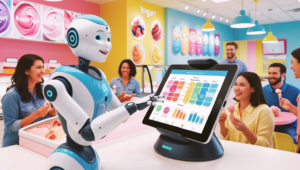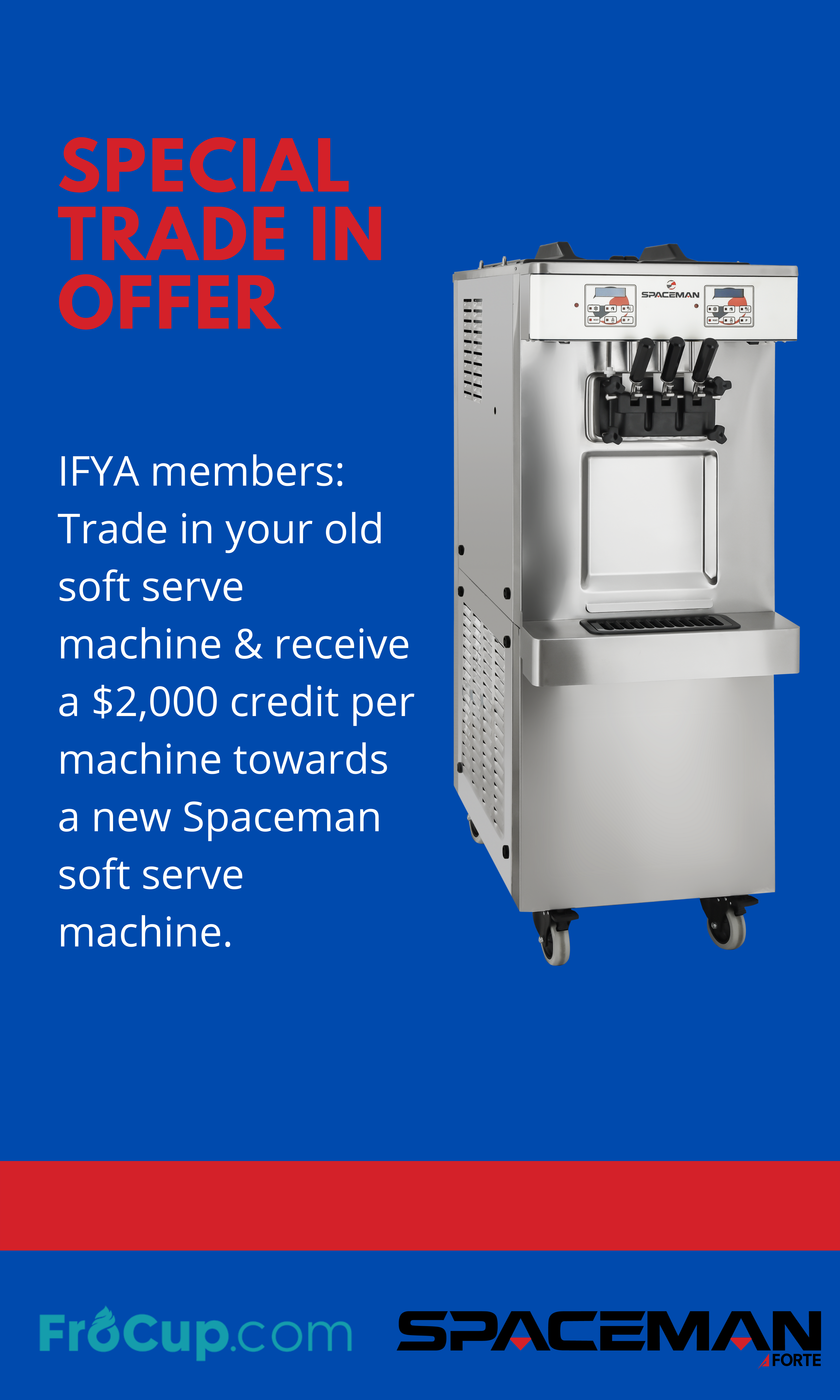 The frozen yogurt industry relies on creativity, customization, and customer satisfaction to stay relevant. With the rise of artificial intelligence (AI), shop owners now have powerful tools to enhance their operations, improve customer experiences, and improve the effectiveness of marketing campaigns. The best part is that any froyo shop can benefit from AI tools. Some of these tools are free. Here are some practical ways frozen yogurt shops can leverage AI, backed by real-world examples.
The frozen yogurt industry relies on creativity, customization, and customer satisfaction to stay relevant. With the rise of artificial intelligence (AI), shop owners now have powerful tools to enhance their operations, improve customer experiences, and improve the effectiveness of marketing campaigns. The best part is that any froyo shop can benefit from AI tools. Some of these tools are free. Here are some practical ways frozen yogurt shops can leverage AI, backed by real-world examples.
AI Enhanced Marketing
Since AI can analyze a large amount of data and find patterns, AI tools can analyze social media trends and customer feedback to craft targeted marketing campaigns for your frozen yogurt shop. For example, AI tools like Meta’s Ads Manager or Google Ads use machine learning to analyze customer data and deliver ads to the most relevant audiences. For example, a frozen yogurt shop can target local families, health-conscious individuals, or college students based on demographics and browsing behavior. This ensures marketing dollars are spent efficiently.
AI tools like ChatGPT or Jasper can help generate engaging social media posts, blog content, or email newsletters. For instance, an AI tool could create an enticing Instagram caption like “Cool off this summer with our new tropical pineapple froyo—tangy, refreshing, and topped with sunshine in a cup!” Recently, ChatGPT’s image generation was used by froyo shops to create Ghibli-style AI art. Jasper AI was built specifically for marketing. Design platforms like Canva offer AI design tools. For example, Canva includes Magic Design, Magic Media, and AI image-generation apps, which allow users to create designs, images, and videos using AI. We used Canva’s Magic Media to create the image for this post.
AI can analyze customer reviews and social media mentions to gauge sentiment about the shop and its products. AI performs sentiment analysis by using natural language processing (NLP) algorithms to analyze customer reviews, social media mentions, and other text-based feedback. AI tools can collect reviews from platforms like Google, Yelp, or Facebook, as well as social media posts and comments about the shop. For example, tools like Sprout Social or Brandwatch are designed to gather and monitor these mentions in real-time. Once the text data is collected, AI uses NLP to categorize the sentiment expressed in the content. It can classify feedback as positive, neutral, or negative. Next, AI identifies recurring themes or patterns. For example, it might notice a trend where the mango flavor receives overwhelmingly positive feedback while another flavor, like chocolate, has mixed reviews. From the sentiment analysis, AI generates insights, e.g., the shop should introduce new flavors inspired by popular trends, the shop should discontinue or improve certain flavors, the shop should emphasize customer favorite flavors in marketing campaigns.
AI Flavor Innovation
AI can help develop unique and trendy flavors by analyzing market data and consumer preferences. For example, Danone, a leader in the dairy industry, uses AI to identify emerging flavor trends and create products that resonate with consumers. AI is already being used by the dairy industry to help develop new products. AI platforms like Tastewise analyze global food trends to suggest new, trendy flavors. One of its standout features is TasteGPT, a generative AI tool that delivers lightning-fast insights. It enables users to explore new product concepts, refine recipes, and create targeted marketing campaigns with unparalleled efficiency. Companies like Nestlé and PepsiCo have used Tastewise to stay ahead in the competitive food and beverage industry.
A frozen yogurt shop could launch a limited-edition flavor inspired by an emerging trend (e.g., matcha or ube) to attract adventurous eaters. Frozen yogurt shops can adopt similar approaches to stay ahead of the curve and attract adventurous customers. AI can also help name the new flavors.
Personalized Customer Experiences
AI can analyze customer preferences and purchasing patterns to offer personalized recommendations. This works better for counter-serve froyo shops. For instance, AI-powered platforms like Tastewise analyze consumer data to predict flavor trends and suggest new combinations. For example, if a customer often buys fruit-based yogurt, the AI might suggest introducing a seasonal passionfruit flavor. Or AI could suggest a new flavor combination to a customer, personalizing the recommendation based on the customer’s past history. AI could also create tailored promotions, such as offering discounts on a customer’s favorite toppings.
Improved Inventory Management
Managing inventory efficiently is crucial for minimizing waste and ensuring a seamless supply chain. AI-driven systems, like the Inventory Management AI used by some frozen yogurt makers, track ingredient levels in real-time, predict shortages, and automate reordering. This ensures that shops always have fresh ingredients without overstocking.
For small frozen yogurt shops, AI tools like Zoho Inventory and DEAR Inventory are excellent options for inventory management. These tools offer features such as real-time tracking, automated reordering, and demand forecasting, which can help shop owners maintain optimal stock levels and reduce waste. Both tools are scalable and can integrate with other business systems, making them practical choices for small frozen yogurt shops.
By integrating AI into their operations, frozen yogurt shop owners can unlock new opportunities for growth and innovation. From personalized experiences to efficient inventory management, AI offers a competitive edge in an ever-evolving industry. As technology continues to advance, the possibilities for AI in frozen yogurt shops continue to evolve.




